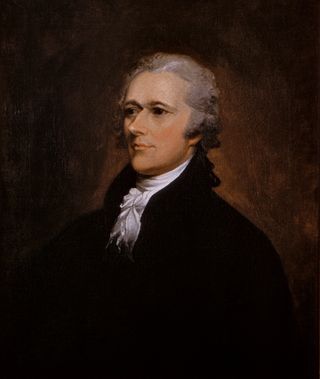False Memories
Future Thinking and False Memories
Looking at the road up ahead can change the scene in the rear view mirror.
Posted July 18, 2016 Reviewed by Gary Drevitch

In the song “My Shot” from the Broadway musical Hamilton, Lin Manuel Miranda’s title character sings, “I imagine death so much it feels more like a memory.” The feeling that his death is already in his past allows Hamilton to dispense with the idea of dying and throw himself into the affairs of his young nation, unafraid of death but fully aware of the brevity of life. According to the logic of the song, Hamilton’s greatness is built, in part at least, upon the foundation of a false memory, and new research suggests a possible reason for the success of his mental strategy.
Psychologists have long been aware of the creative license our brains exert when encoding the factual details of our life experiences into autobiographical memories, and our everyday lives offer no shortage of concrete examples to illustrate the phenomenon. We’ve all felt the embarrassment of sharing a story about something interesting that happened to us, only to have the details of our story called into question by someone who experienced the same interesting event (“That car that sideswiped us was white, not red, and I’ve got the insurance photos to prove it”). And those occasions on which we are actually called out about our erroneous memories are undoubtedly a mere fraction of the factually inaccurate memories with which we are never confronted.
Rather than indicate any fundamental weakness or defect in our memories, however, the frequent disparity between the facts as they happened and the way we remember them is actually a reflection of the constructive nature of autobiographical memory. Whenever we recall some event from our past, we don’t simply call up a file and replay a recording of it, like we would a YouTube video, but rather construct it anew from memory traces stored in various locations throughout our brains. And each time we rebuild it, we do so in a slightly different way. As psychologist Elizabeth Loftus observes, “In essence, all memory is false to some degree. Memory is inherently a reconstructive process, whereby we piece together the past to form a coherent narrative that becomes our autobiography.” Deviations from factual reality—false memories—are not a deviation from the norm, but rather an intrinsic and inevitable result of our constructive memory.
For many years, memory research focused on the more unfortunate aspects of false memories, such as widely publicized cases of people being wrongfully convicted on the basis of testimony that, even though witnesses genuinely believed what they were saying, turned out to be false. More recent research, however, has found a silver lining to the false memory cloud. Using a technique called the Deese/Roediger—McDermott procedure, in which people are presented with a list of semantically associated words (e.g. bed, wake, rest, and dream) and then later asked to recall the words—psychologists have been able to reliably induce false memories in the laboratory. On the later recall/recognition test, subjects frequently report having seen a related word, a “critical lure,” that was not actually on the list (e.g. falsely remembering the word sleep after seeing bed, wake, rest, and dream).
By predictably triggering false memories, researchers have been able to identify psychological traits associated with them, and many of these traits are surprisingly positive. In one study, experts in a given field “were at increased risk of domain-relevant intrusions,” indicating that “the superior organizational processes of experts support the associations that give rise to false memories.” Another study found a “positive correlation between creativity…and susceptibility to false recall,” and still other studies suggest that the generation of false memories can “prime solutions to insight-based problems.” All of this research indicates that false memories, rather than being intrinsically problematic, are actually “adaptive” and “functional.”
Having memories that depart from factual reality, then, is a normal, even desirable function of human memory. And in an ironic twist, it appears that our tendency to misremember a past event is particularly prevalent when we first think about it in terms of the future. Psychologists at the University of Hull, England, conducted a variation of the Deese/Roediger—McDermott procedure that incorporated future thinking into the usual word presentation/recall paradigm, having participants imagine a future camping trip and then rate words on the presented list for their relevance to the trip. In the follow-up recall and recognition tests, participants demonstrated higher levels of both false recall and false recognition than participants who rated the words according to other measures of relevance (e.g. past experiences, or pleasantness). The study supported the emerging view that the associative processes involved in the creation of false memories can produce a number of unexpected cognitive benefits, and that these associative processes can be enhanced by future thinking and planning.
When the Broadway Alexander Hamilton sings “I imagine death so much it feels more like a memory” in a song about his ambitions for future achievement, he is affirming the adaptive function of false memories. By imagining his future death, he creates a false memory of death as a past event, and in the process spins a web of associations off of that memory that tags everything he does with a compelling sense of urgency. It is this urgency that propels him headlong toward his destined greatness.


